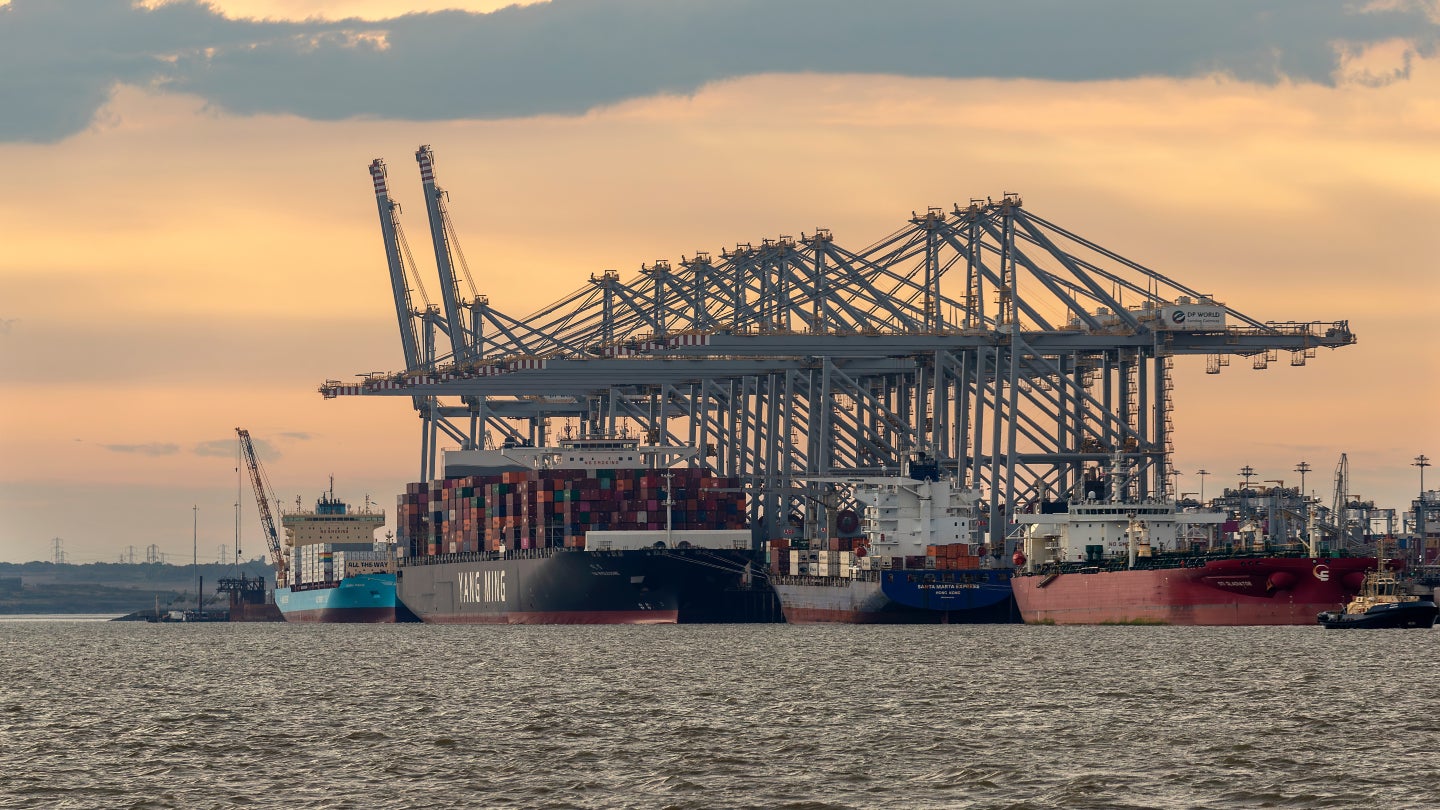
UAE-based logistics company DP World has removed fossil fuels from its UK logistics hubs after replacing fossil diesel with Hydrotreated Vegetable Oil (HVO) at its London Gateway terminals.
Diesel powered equipment was switched over to running on HVO at the start of 2024 at London Gateway as the company continues working towards achieving net zero carbon emissions across its operations by 2050.
Ahsan Agha, vice president of port operations at DP World London Gateway, said: “Transitioning from fossil diesel to Hydrotreated Vegetable Oil (HVO) across our operations is critical to meeting our customer’s supply chain demands.
“The move demonstrates not only our goal of becoming a net zero carbon organisation by 2050 but also highlights our commitment to our customer’s sustainability success as well as our own.”
DP World said it expects to record a 26% net reduction in total carbon emissions thanks to the switch, which follows the successful transition to HVO at the company’s Southampton port in 2022 that helped lead to a 55% reduction in net carbon emissions.
By using HVO in the place of fossil diesel, DP World said London Gateway, which is on the River Thames in Essex, would save around 98,300 tonnes of CO2 equivalent through 2024.
Both ports have been looking to improve the sustainability of their operations over recent years, with London Gateway conducting trials such as one utilising solar panels on its gatehouse building to make the entrance structure carbon neutral.
The company is also hoping to further improve the environmental friendliness of the port when it opens its £350m fourth berth later this year with investments such as eight fully electric straddle carriers hoped to bolster net zero aims.



